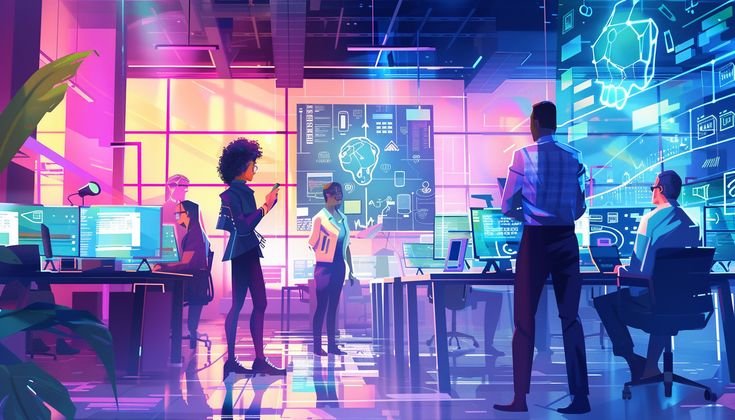The rise of artificial intelligence (AI) is not just a technological trend; it’s a transformative force that is reshaping our world. As AI tools become increasingly sophisticated, their impact will be felt across all facets of life, from how we work and communicate to how we solve complex global challenges. But what does the future look like with AI at the helm?
AI in the Workplace: Revolutionizing Productivity
One of the most significant impacts of AI will be in the workplace. According to a report by McKinsey, AI has the potential to automate up to 45% of the tasks currently performed by humans, freeing up time for creativity, strategic thinking, and more meaningful work . Imagine AI tools managing your schedules, automating repetitive tasks, and even providing personalized insights to help you make better decisions. These tools will not only boost productivity but also enhance job satisfaction by allowing workers to focus on what truly matters.
AI in Healthcare: Saving Lives and Improving Quality of Care
In healthcare, AI is already making strides, and its future looks even brighter. AI-driven diagnostics tools are becoming more accurate, potentially saving countless lives by detecting diseases like cancer at earlier, more treatable stages. The World Health Organization estimates that by 2030, AI could save the lives of 2.5 million patients annually by improving diagnostics, personalized medicine, and patient care . These tools will not only save lives but also improve the quality of life for millions by providing better, faster, and more personalized healthcare.
AI in Communication: Connecting Us Like Never Before
AI is also revolutionizing how we connect and communicate. Tools like AI-powered virtual assistants are not just responding to commands but are beginning to understand context, emotion, and intent. By 2025, Gartner predicts that 75% of customer interactions will be handled without a human agent, thanks to advancements in AI . These tools will help streamline communication, making it easier for people to connect across the globe, breaking down language barriers and enhancing our ability to understand and empathize with one another.
The Human Touch in an AI World
While the capabilities of AI are vast and growing, it’s essential to remember that these tools are here to enhance, not replace, the human experience. The future of AI is not about machines taking over but about using these powerful tools to empower people. AI will shape the future by enabling us to focus on what makes us uniquely human—our creativity, empathy, and ability to connect with others.
In conclusion, AI tools will play a pivotal role in shaping the future. From revolutionizing workplaces to saving lives in healthcare and enhancing communication, the potential of AI is vast. As we embrace this future, it’s crucial to leverage AI to enhance our lives, ensuring that we remain at the center of this technological evolution. The future, with AI by our side, is one where technology serves humanity, not the other way around.
Sources:
- McKinsey & Company. (2020). “The future of work after COVID-19.” McKinsey Report
- World Health Organization. (2019). “Digital Health.” WHO Report
- Gartner. (2021). “Customer Experience and AI.” Gartner Report


Leave a Reply